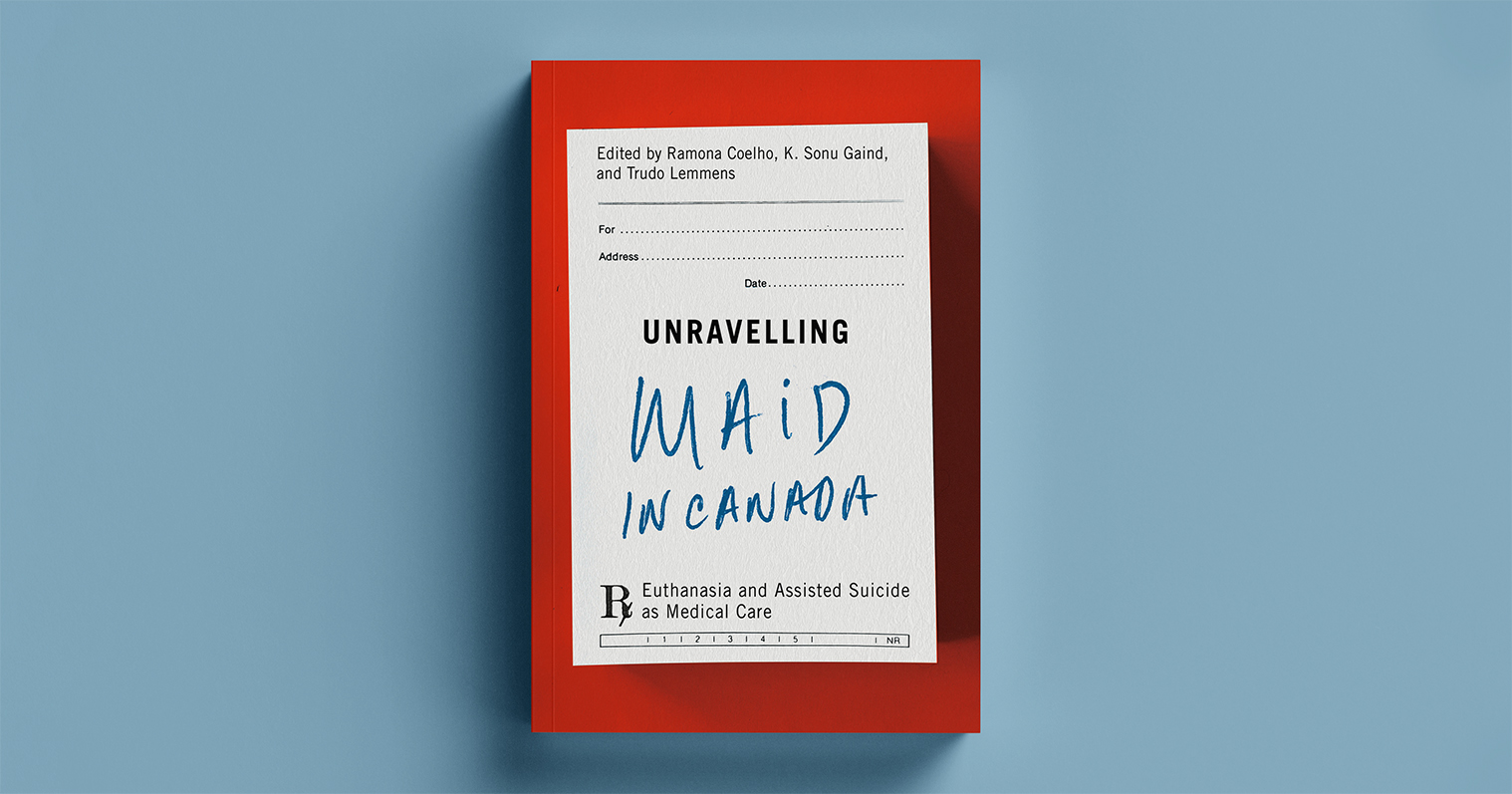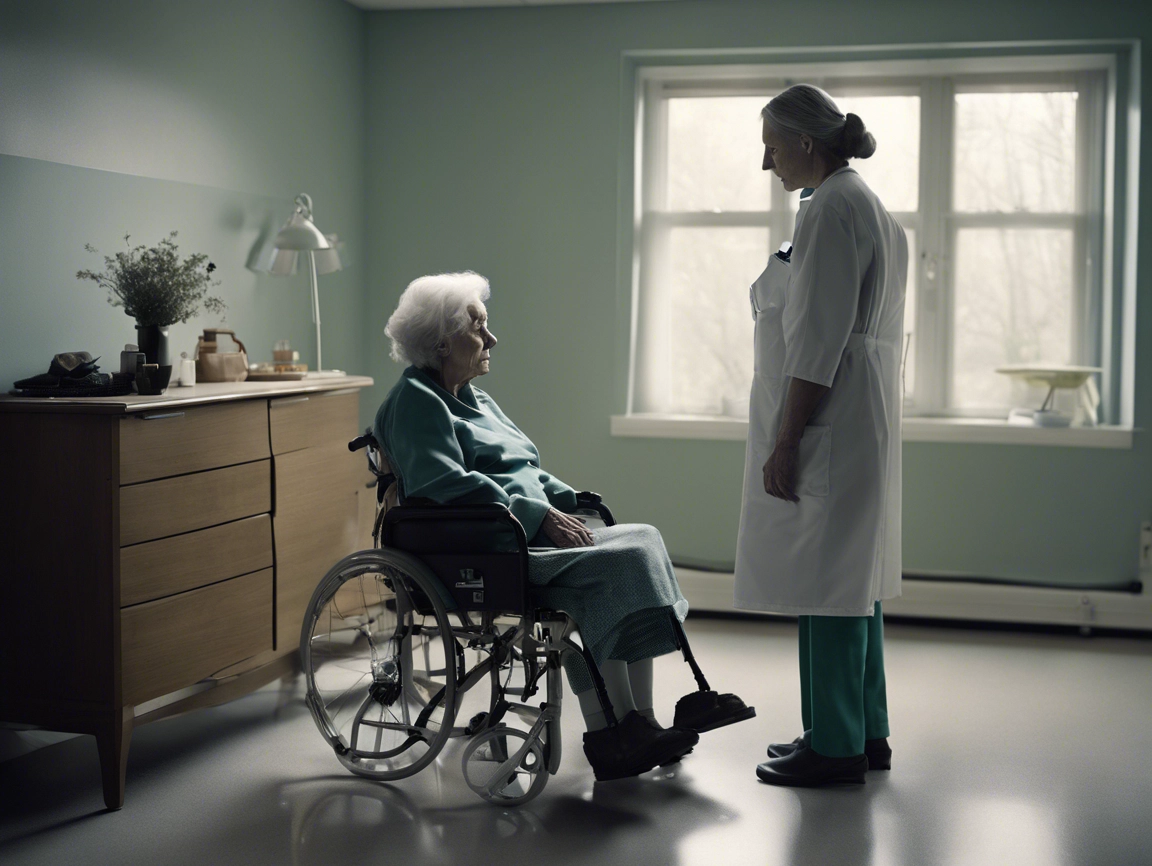On Wednesday, March 17th, 2021, the Senate voted to adopt the latest version of Bill C-7, which expands access to medical assistance in dying (MAiD) to Canadians who are not near natural death, including those with disabilities and chronic physical and mental illness.
We also learned this week that the Quebec government has created a Special Committee on the Evolution of the Law on End-of-Life Care to look specifically at the extension of euthanasia to people with mental illness and people incapable of decision-making who made an advance request. The committee is to submit its report by November 19th, 2021.
Following the passing of Bill C-7, here are some reactions from the disability community, psychiatrists, other physicians and citizens who are concerned about the expanded access to MAiD especially in vulnerable populations without the provision of adequate health care and social supports:
- PATRICIA NEVES: Disability is not a fate worse than death. Patricia Neves is the executive director of Inclusion Nova Scotia. Inclusion Nova Scotia has expressed disappointment in the government’s choice to legalize Bill C-7 and concern due to the ‘clear and frightening’ potential of abuse.
- CCD Disappointed by House of Commons Yes Vote on Bill C-7 (Medical Aid in Dying
Their disappointment stems from their primary concern: the high risk to vulnerable people with disabilities who may opt for MAiD simply because it offers a way out of their misery, especially when they are faced with limited access to disability-related supports. - Disability rights advocate opposes expanding assistance in dying – Nancy Hansen:
An open letter to parliamentarians arguing against Bill C-7’s implicit message that ‘life with a disability is a fate worse than death’. - Ottawa’s MAID regime was never about assisting the dying by James Mahony.
The article highlights some of the fundamental concerns regarding: the expansion of MAiD, the loosening of safeguards and limited palliative care resources. - Expert argues that medical assistance in dying for mental illness ignores safeguards for vulnerable people. An article by Dr. Karandeep Sonu Gaind, Associate Professor at the University of Toronto, Department of Psychiatry and Chief of Psychiatry/Medical Director of Mental Health at Humber River Hospital and co-Director of the U of T Adult Psychiatry & Health Systems Division.
- House of Commons passes Bill C-7 opening assisted death to the mentally ill
- Articles by Dr. John Maher:
Dr. John Maher is an assertive community treatment (ACT) psychiatrist, President of the Ontario Association for ACT and FACT, and Editor-in-Chief of the Journal of Ethics in Mental Health - MAiD for mental illness: why safeguards won’t work – John Maher.
Dr. John Maherreasons that medical assistance in dying (MAiD) should not be a legal option for persons whose sole underlying condition is mental illness because the proposed safeguards will fail over time. - MAiD for Mental Illness: Myths & Facts. Dr. Maher attempts to dispel some of the myths surrounding MAiD and share the facts.
- Passage of assisted suicide bill concerns palliative care, mental health advocates
Phyllis O’Connor, executive director of the CMHA Saskatchewan Division, reported that the Canadian Mental Health Association (CMHA) is opposed to Bill C-7 changes that allow for medical assistance in dying for individuals with mental illness, especially since mental illnesses are not terminal. - MAiD Bill is an affront to equality: By Archibald Kaiser, Isabel Grant, Trudo Lemmens and Elizabeth Sheehy
The authors cite the Convention of the Rights of Persons with Disabilities (CRPD) which was ratified exactly 11 years ago by Canada and was aimed at protecting individuals with disability instead of promoting marginalization by inequality and ableism, as is the case with Bill C-7.
RESOURCE:
- Physician Assisted Suicide and Euthanasia for non-Terminal Psychiatric Patients: An Emerging Ethical Crisis, presented by Mark Komrad, M.D., Clinical Instructor, Johns Hopkins School of Medicine, Department of Psychiatry; Clinical Assistant Professor, University of Maryland School of Medicine, Department of Psychiatry


